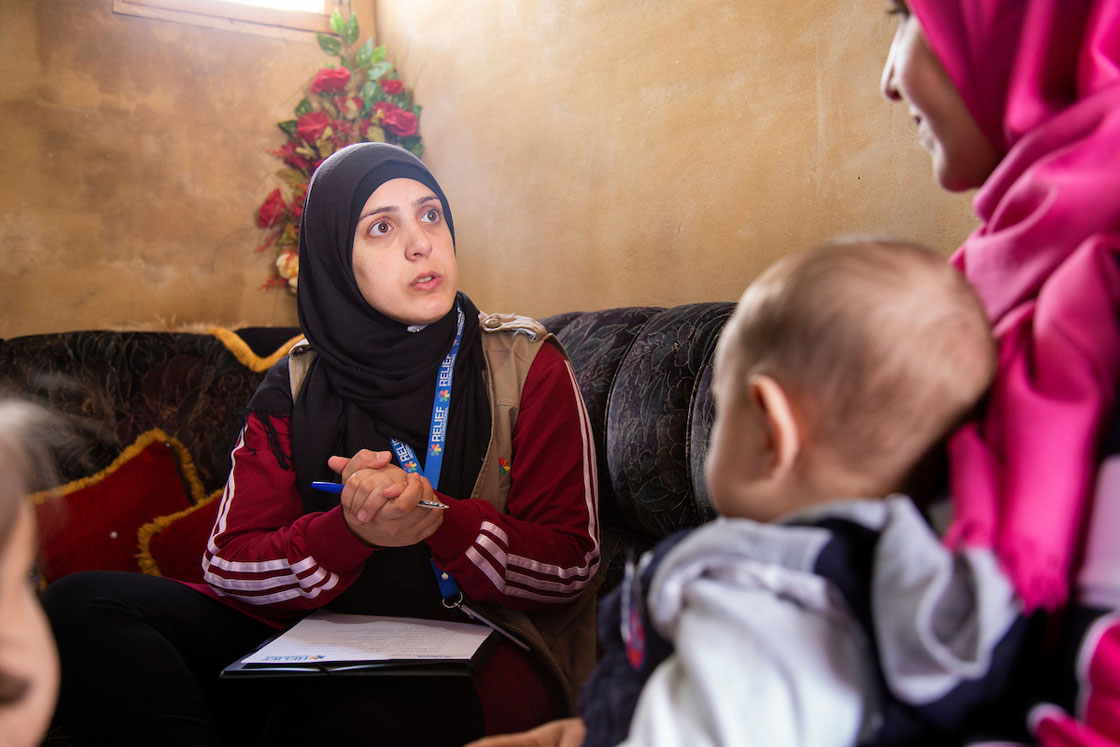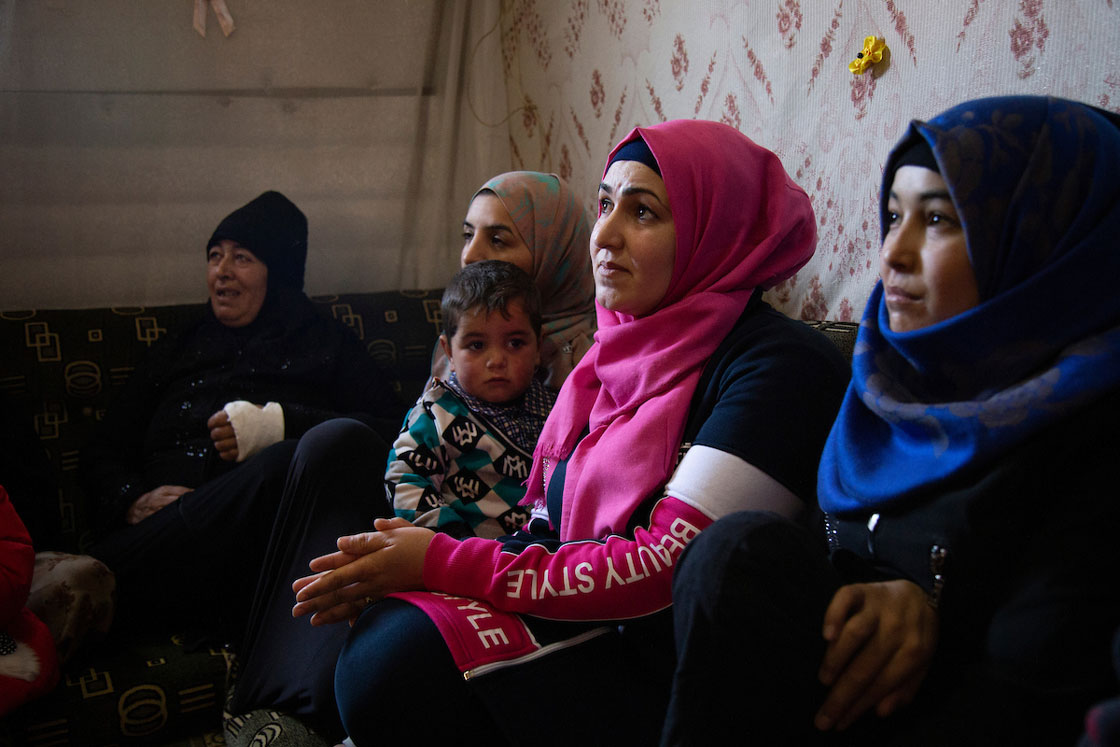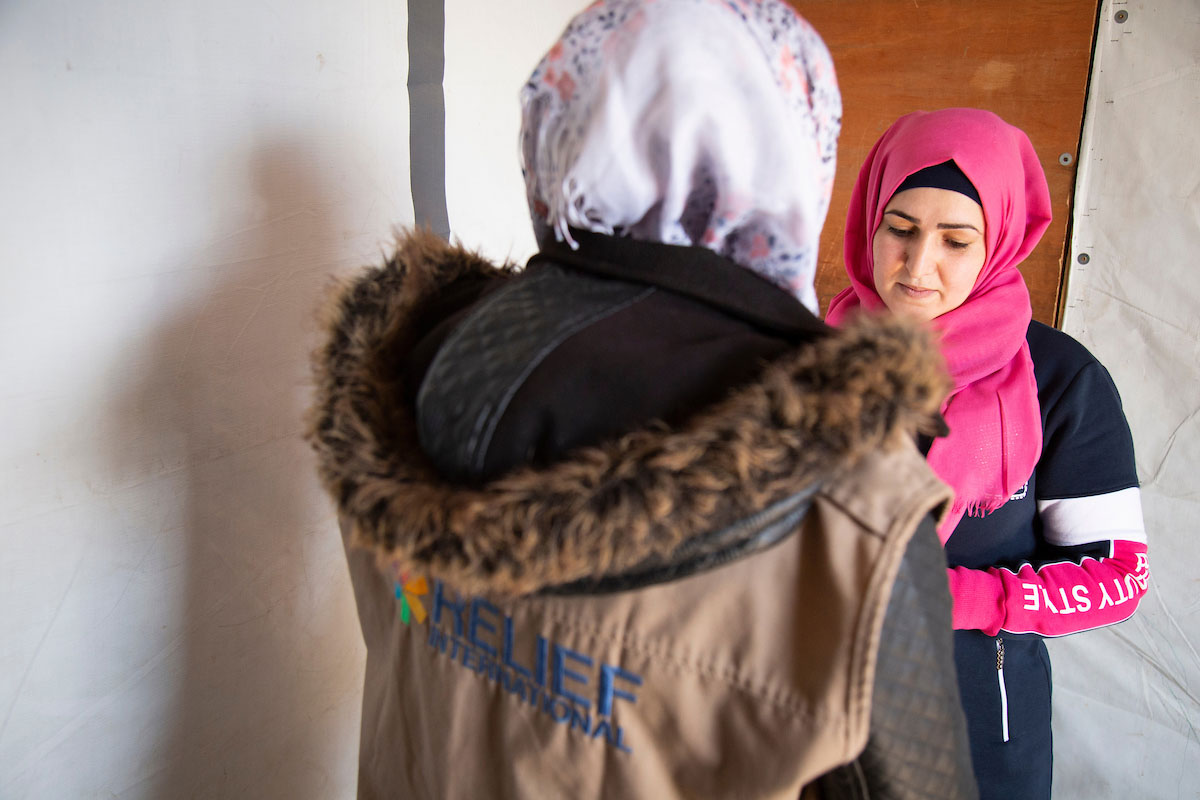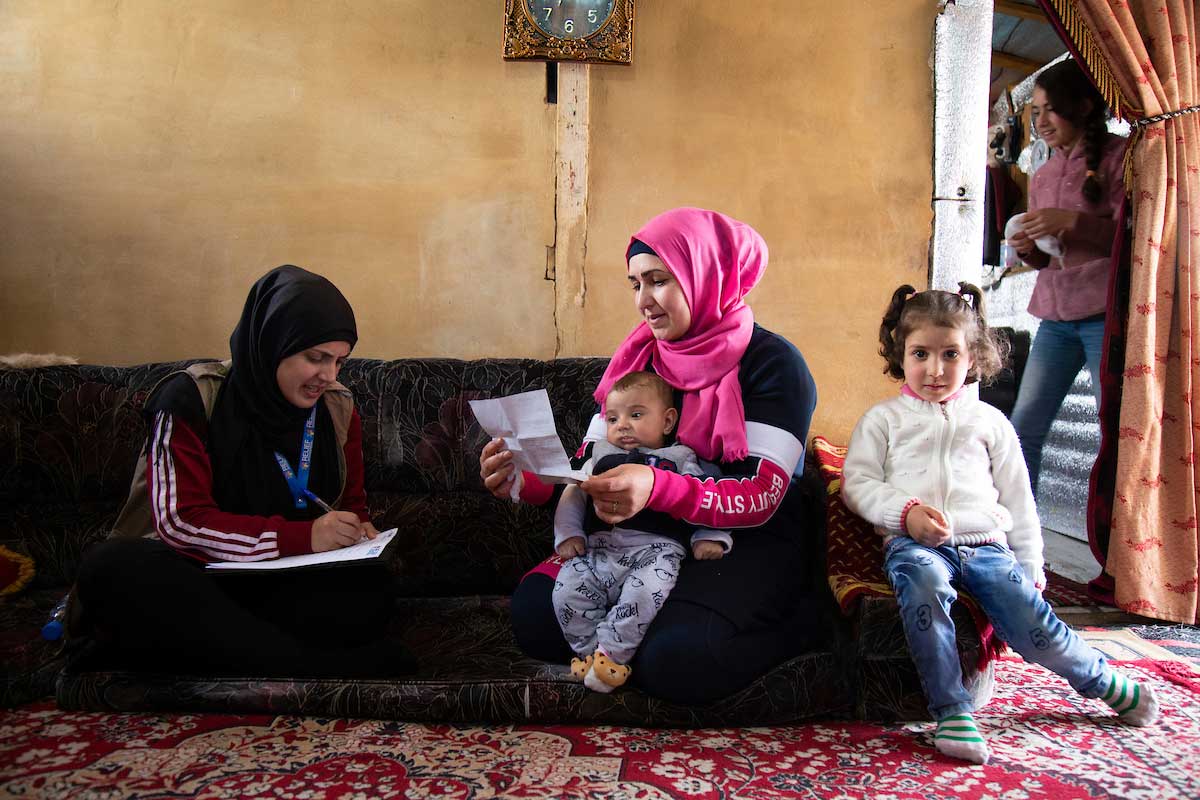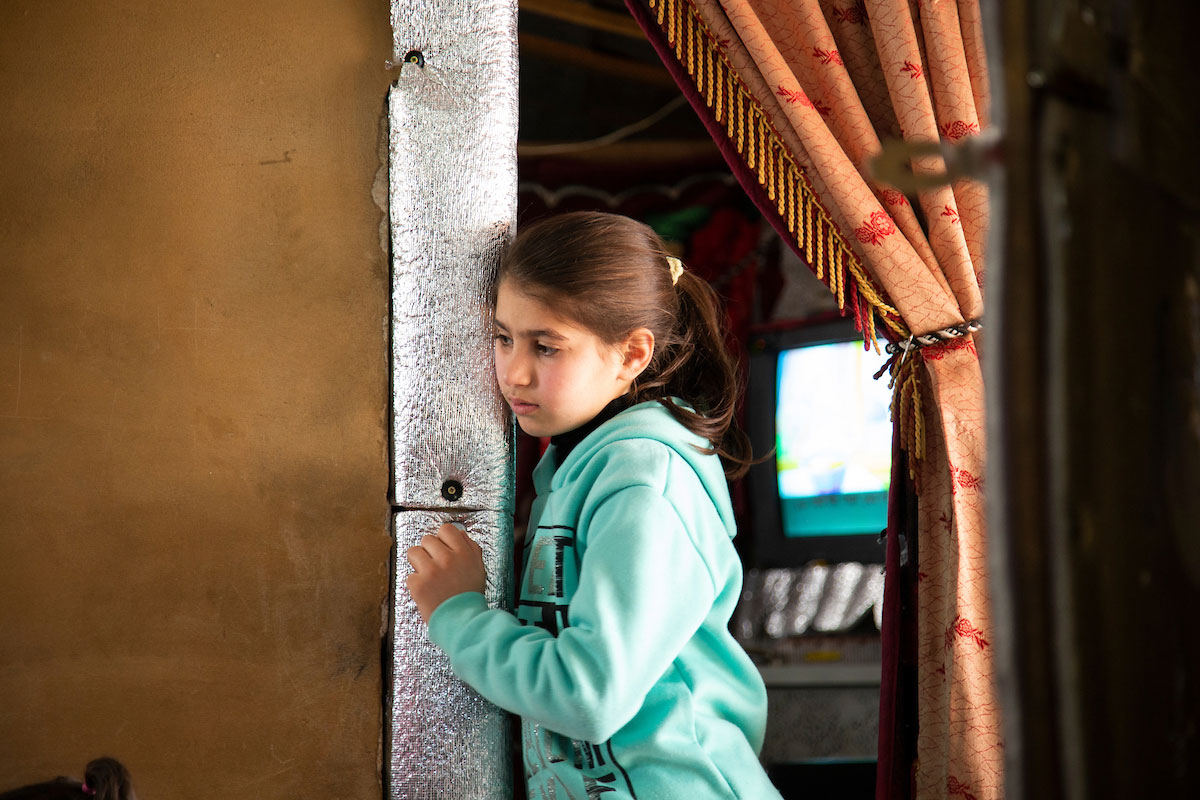Both receive mental health services from Relief International, which are offered free of charge to local Lebanese residents and Syrian refugee families.
Relief International began working in Arsal, situated along the Lebanese-Syrian border, in February 2018 providing healthcare services to vulnerable Syrian refugees and Lebanese households. Many of our patients exhibited classic symptoms of depression and anxiety, but they did not have the resources in place to support their recovery.
“When the program first started, the majority of people were reluctant to accept our services. In the Middle East, there’s a taboo around mental health. People typically prefer to keep their emotions to themselves, sharing them with religious leaders or close family members before seeking out professional help,” shares Johan Lefebvre Chevallier, Relief International’s Middle East Regional Director. “However, we must continue to chip away at the stigma surrounding mental health. Otherwise there will be a very low likelihood that people will be able to heal from past trauma and move forward in their lives.”
Through outreach efforts led by local Lebanese and Syrian volunteers and word of mouth, the news quickly spread throughout the town that mental health services were now available in Arsal – and that people were starting to feel better.
“Some people try to hide their problems at first, but the truth always shows on their face. I know when they’re not telling me the full story. After two or three sessions that’s when people start to really open up,” shares Fatima Abdul Wahed, a social worker with Relief International in Arsal.
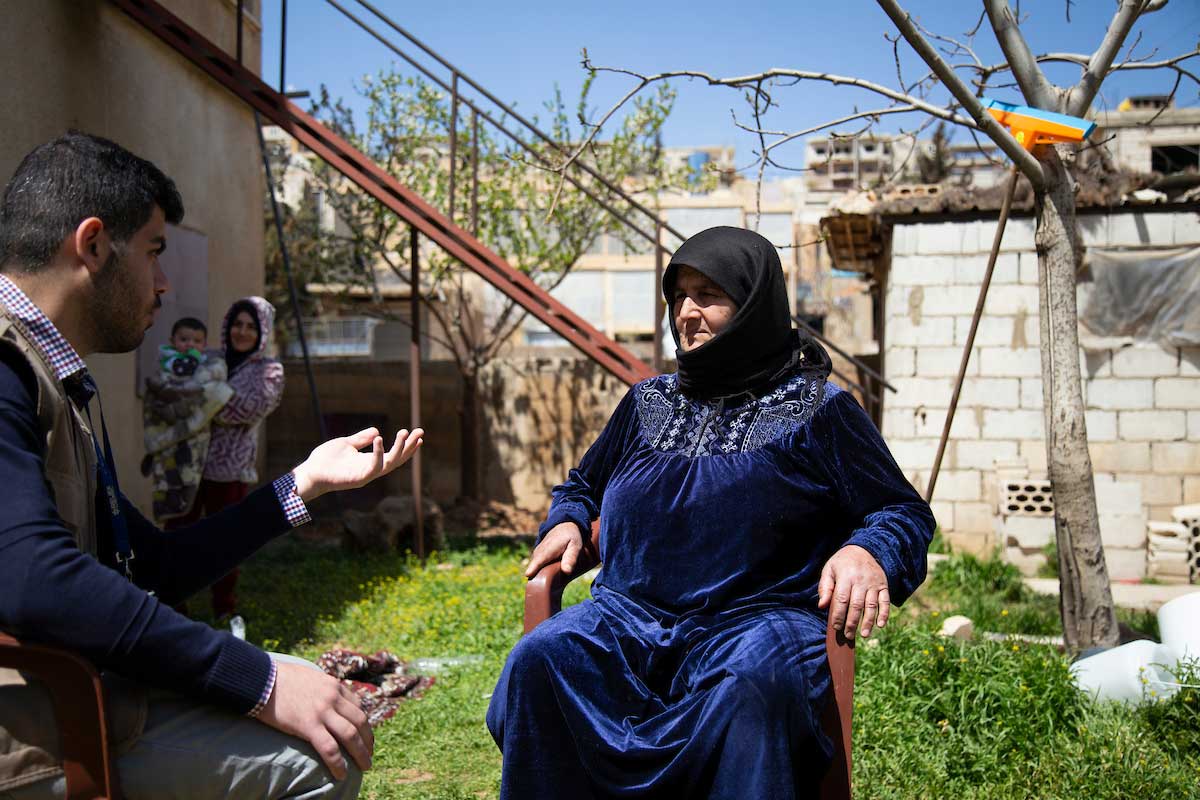
Relief International social worker Mazen Al Jabali talks with Mariam at her home in Arsal during a weekly counselling session.
© Elie Gardner/RI
When Relief International Social Worker Mazen Al Jabali first met Mariam, she would rarely leave her apartment, sitting alone for hours. At first, Mariam was shy in opening up about her personal life. Recently widowed, Mariam grapples with the loss of her long-time partner and worries about her daughter Khawla’s future. However, she now looks forward to their weekly sessions with Mazen. Sitting outside in the sun on the grassy patch of her apartment complex as she waits for her session to start, Mariam shares, “I’m always happy to see his face and smile each week.”
Every Thursday, Mazen spends about thirty minutes with her at her home, catching up and developing strategies for ways to overcome the issues in her life. While Mariam’s worries still persist, she confides that through these sessions she’s learned how to think positively, which has provided her with some comfort.
Like Mariam, Asmaa’s depression also stems from fears for her children’s future. When her assigned social worker Fatima Abdul Wahed visits her at home, Asmaa confesses that she cries often about the fact that she cannot provide the kind of future she’d like to for her children. While these sessions are intended to provide one-on-one counselling, they have the tendency to turn into group therapy sessions at Asmaa’s house as her seven children crowd around her offering tissues and support.
Both Syrian refugees and Lebanese host community members in Arsal face similar vulnerabilities – all of which can contribute to long-term mental health problems. For decades, Arsal’s proximity to the border has led to the allocation of fewer resources and services, contributing to the fragility of this pocket of the country. In recent years, the town also experienced extreme insecurity as violence from the Syrian crisis spilled across the border. While Arsal is marked by relative calm today, these difficult experiences have all had a direct impact on residents and refugees’ mental health.
“While mental health is becoming less taboo, it takes time for these cultural shifts to happen,” says Rayan Aziz, Relief International’s Mental Health Supervisor and Psychotherapist. “But, in these fragile communities, when people hear that their friends, neighbors, and even their parents are feeling better, it makes them more willing to seek out help for themselves.” Our teams report that self-references are steadily climbing, in part, due to community outreach efforts and awareness sessions. “It’s evident that our efforts to reduce the stigma surrounding mental health are working,” shares Rayan.
